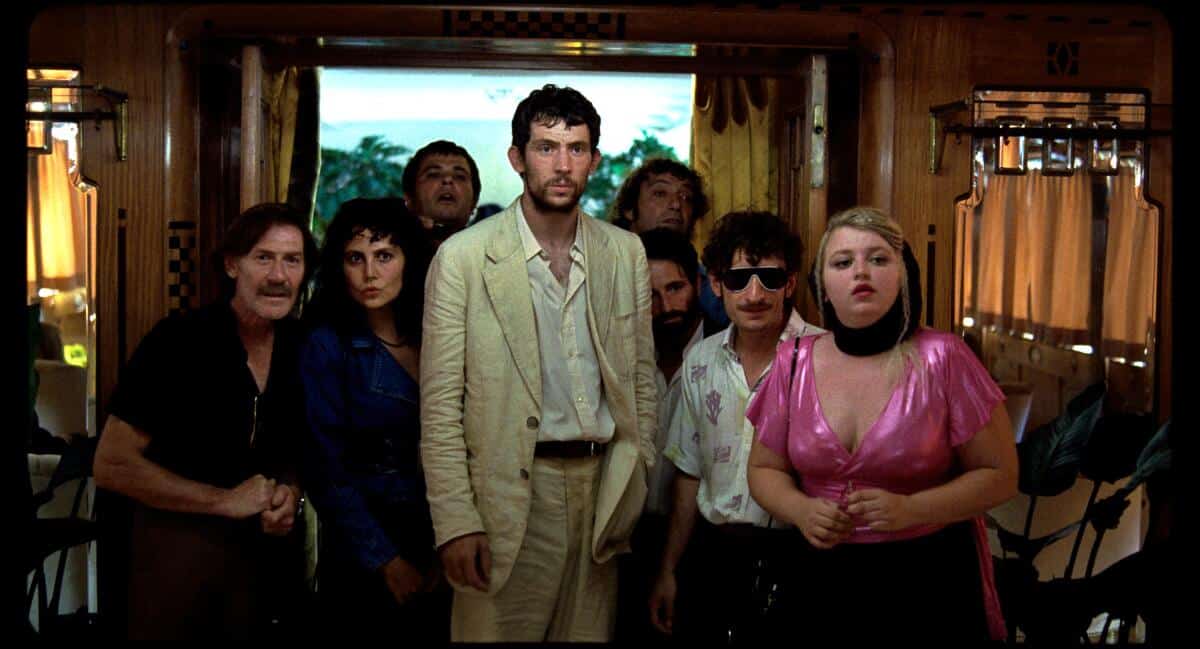You may be familiar with the Greek mythological story of Ariadne – the daughter of the Cretan king Minos, who fell in love with an Athenian hero named Theseus, and helped him to escape a Labyrinth using only a thread.
We get the term ‘Ariadne’s thread’ – an approach to puzzle or philosophical debate (with multiple available ways to proceed) that ensures steps can be traced throughout until the logical end point – from that story. Alice Rohrwacher’s La Chimera is a an Ariadne’s thread of a film, a narrative that feels alive with possibilities. On the whole it depicts each step of a search for both real and unreal prizes of the past, and the ethical condundrum that follows such a journey.
Rohrwacher transports us to 1980s Italy to examine class, capitalism, and the fascinating yet ultimately bleak world of the ‘tombaroli’: graverobbers who sell their goods on the blackmarket just to earn a living.
Our leading man Arthur (Josh O’Connor) is a British archaeologist who’s done hard time after getting involved in a network of graverobbers in Italy. These robbers steal and fence artefacts from the Etruscan period, most of which were left in tombs as offerings for spirits in the afterlife. Arthur has been released from prison, but rather than denouncing his criminal ways, he gets right back into it. After all, he’s not just any robber: he is a diviner, and uses his powers to locate those coveted artefacts. He’s also poor.
Arthur doesn’t give a damn about the artefacts, though. His thoughts lie elsewhere as he remembers his long-gone fiancé Beniamina, and searches across the countryside for a way to reunite with her – even if it means travelling to the underworld. Maybe it seems like a fool’s errand, but for a man whose supernatural forces tell him where ancient treasure is, anything is possible.
La Chimera is Indiana Jones if directed by Frederico Fellini and Agnes Varda, with a troubadour chorus, a blend of sped-up film and long static shots, and moments of direct-to-camera dialogue all adding to the disorienting dream-like vibe of the film. It’s also a clear retelling of the Ariadne myth, complete with a red thread (seemingly belonging to Beniamina’s dress, or at least that’s how Arthur remembers it), that guides the protagonist to his destiny.
Cinematographer Hélène Louvart, who has worked with Rohrwacher four times now (and also shot Varda’s Beaches of Agnes), orients and disorients us with the camera, divining a story as Arthur divines artefacts. Sometimes the narrative moves this way and follows the tombaroli and their faceless boss Spartaco, sometimes it moves that way and follows Beniamina’s elderly mother Flora (Isabella Rossellini) as she teaches a young woman named Italia (a luminous Carol Duarte) how to sing in return for cooking and cleaning services.
Italia’s name may be a little on the nose – she is literally named for the country she resides in, and as she voices her disapproval for Arthur’s graverobbing you can’t help but feel that the spirit of Italy is reprimanding him. But the way this is acknowledged in the film – the tombaroli laugh at her and calling her ‘Viva Italia’ (long live Italy) – shows that Rohrwacher is not one to shy away from obvious metaphors.
In tandem with the illegal taking of ancient artefacts storyline, we see a story of great poverty in Italy, with Arthur living in a rundown shack that only has a single gas burner for heat in the dead of winter. Flora lives alone, with her daughters (Beniamina’s sisters) insisting that she move to a nursing home. Italia lives in Flora’s home as her maid, while secretly harbouring in her two children without Flora’s knowledge.
The tombaroli scrounge and steal like dogs to find their next meal. On the other side of the class barrier, the wealthy scramble for stolen goods in the same manic way, driven by greed and a hunger for status.
La Chimera is crafted with such confidence in storytelling and style that it’s hard not to be in awe of Rohrwacher. The story may be focused on 1980s Italy, but it could work just as well as an Ancient Roman fable, swapping the Etruscan artefacts for artefacts of the gods. It serves as both a parable and an imagination-spurring epic that will cling to you long after you’ve left the theatre.
Follow the thread of La Chimera when it comes out in cinemas this Thursday, and see where it takes you.
La Chimera is in cinemas from 11 April.
Actors:
Josh O'Connor, Isabella Rosselini
Director:
Alice Rohrwacher
Format: Movie
Country: Italy, France, Switzerland
Release: 11 April 2024





